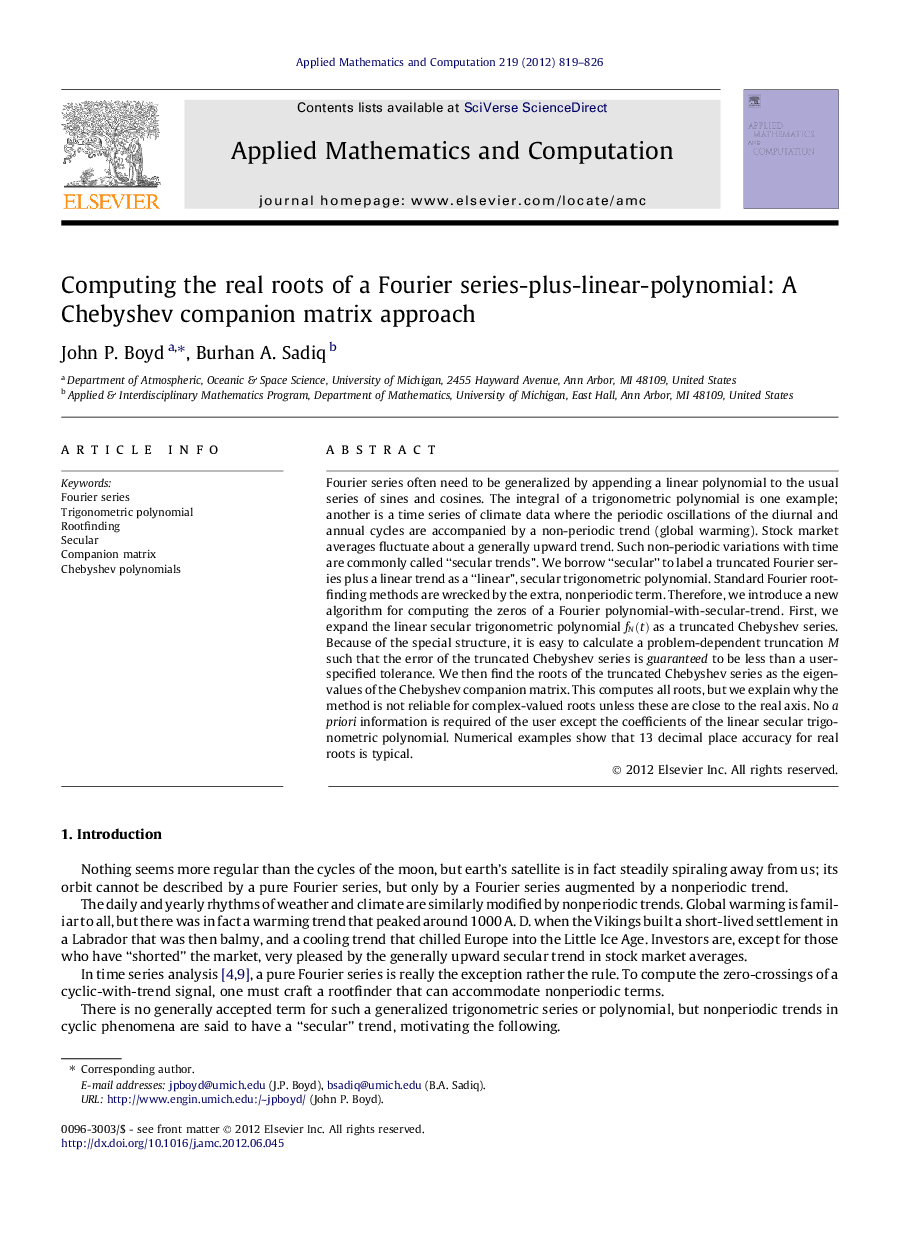| Article ID | Journal | Published Year | Pages | File Type |
|---|---|---|---|---|
| 4630027 | Applied Mathematics and Computation | 2012 | 8 Pages |
Abstract
Fourier series often need to be generalized by appending a linear polynomial to the usual series of sines and cosines. The integral of a trigonometric polynomial is one example; another is a time series of climate data where the periodic oscillations of the diurnal and annual cycles are accompanied by a non-periodic trend (global warming). Stock market averages fluctuate about a generally upward trend. Such non-periodic variations with time are commonly called “secular trends”. We borrow “secular” to label a truncated Fourier series plus a linear trend as a “linear”, secular trigonometric polynomial. Standard Fourier rootfinding methods are wrecked by the extra, nonperiodic term. Therefore, we introduce a new algorithm for computing the zeros of a Fourier polynomial-with-secular-trend. First, we expand the linear secular trigonometric polynomial fN(t) as a truncated Chebyshev series. Because of the special structure, it is easy to calculate a problem-dependent truncation M such that the error of the truncated Chebyshev series is guaranteed to be less than a user-specified tolerance. We then find the roots of the truncated Chebyshev series as the eigenvalues of the Chebyshev companion matrix. This computes all roots, but we explain why the method is not reliable for complex-valued roots unless these are close to the real axis. No a priori information is required of the user except the coefficients of the linear secular trigonometric polynomial. Numerical examples show that 13 decimal place accuracy for real roots is typical.
Keywords
Related Topics
Physical Sciences and Engineering
Mathematics
Applied Mathematics
Authors
John P. Boyd, Burhan A. Sadiq,
